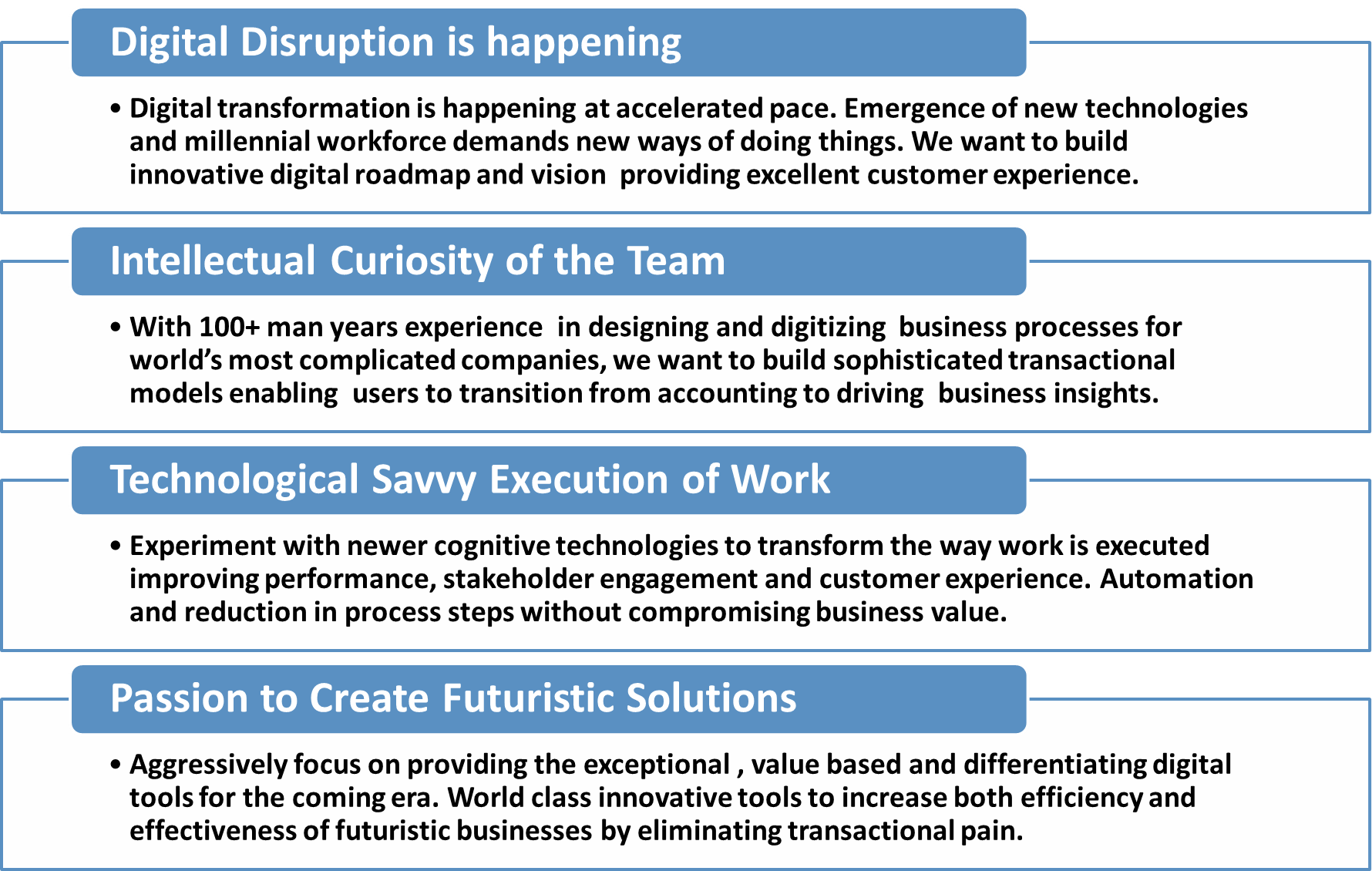- Home
- Business Processes
- Industry Knowledge
- Aerospace Industry
- Automotive Industry
- Banking Domain
- BFSI Industry
- Consumer/ FMCG Industry
- Chemicals Industry
- Engineering & Construction
- Energy Industry
- Education Domain
- Finance Domain
- Hospitality Domain
- Healthcare Industry
- Insurance Domain
- Retail Industry
- Travel and Tourism Domain
- Telecom Industry
- Leadership Skills
- eLearning
- Home
- Leadership
- Career Management
- Guide to Technical Leadership Skills
Guide to Technical Leadership Skills
Technical leaders care about building amazing products and the best technical capabilities in their teams. Everything they do is focused on improving the user experience and bringing competitive advantage for their organization. Learn the skills and competencies you need to build a technical career path for yourself that starts with building technical expertise and grows into developing technical leadership.
With any medium you are working in, technical skills obviously help, but your mind is what you really need to expand. That is how you create work. That's the role of the artist - to change the way you view things.
- Petra Collins
Technical Skills to Technical Leadership Career Path
It plays a major role in today’s businesses and building great software requires making decisions from the beginning to the end. The first responsibility of a technical leader is to define the technical strategy and decide on the technical direction the company should take. Technical leadership requires technical excellence, the business and technological context, and the ability to balance between speed, quality, and resource constraints.
Technical Leaders are those who excel and distinguish them as the most skilled and demanded professional who always acts with a high degree of professionalism. They are dedicated learners who are always committed to personal and professional development along-with pursuing a path of lifelong learning. They possess strategic thinking skills with the ability to link technology with business processes to provide quality advice for effective business solutions.
A strong leader must understand the technical details of the overall project and constantly guide the team to stay focused on the overall vision that the organization is trying to achieve. A technical leader must also have the skills to build a strong technical team, assign them meaningful work, and also track and understand the details of the work the team is doing.
How to Build Technical Leadership
Technical leadership requires technical skills as well as functional business process knowledge to gain a complete understanding of ever-changing business dynamics. They need to gain business know-how and enable their technical or functional abilities to work more efficiently and effectively while performing their role, which is to increase productivity, drive operational excellence, and ensure quality, providing better solutions to complex business problems and drive cost reduction in their respective areas.
If you are working in a modern End-to-End integrated IT-enabled enterprise, you need to gain a relevant skill-set, explore techno-functional opportunities, and showcase your expertise and experience more confidently. You should be able to anticipate and address the changing needs of clients, employers, customers, and markets well than any other professional that does not have technical expertise. You should gain substantial knowledge of the industry's most widely used enterprise resource planning tools and important related fields like SOX requirements, Six Sigma, Risks Controls and Governance, Audit of Systems, and can demonstrate this ability to integrate into the business decision process.
You should try to seek formal education to the foundation of key terms and all the key processes applicable to your domain, which will help you in a long way to understanding the business terminology and business needs. This when combined with your technical knowledge will help you in providing effective and efficient business solutions that will help you put your career on a fast track.

Importance of Technical Leadership
As the number of companies is opting for automated systems to track their business operations, more and more change initiatives are undertaken by corporates. This has created an ever-increasing demand for Technical, Functional, and Techno-functional resources. There is no specialized community or portal available in the market that can assure employers and clients about the capability of these highly paid resources. The pool of credentialed talent is not keeping pace with the demand and there is no formal certification process to ensure the techno-functional they employ have the necessary skills and expertise to understand the business requirements and translate the IT Systems operating in complex business models to make then effective for business objectives.
Most of the people working on complex projects have gained their knowledge by virtue of their experience rather than going through professionally recognized formal training on how to best execute their responsibilities. There are a huge scarcity and demand for skilled techno-functional managers is at a critically urgent level. Effective technical leadership skills enable you to stand out from the crowd and demonstrate your techno-functional skills with required business, domain, and leadership skills.
Key Responsibilities of a Technical Leader
Given below are the key responsibilities that a technical leader is expected to perform in his role:
- Defining the vision and path to achieve technical excellence and productivity for the team
- Leading by example is very important to demonstrate technical expertise
- Defining projects and providing technical direction
- Focus on the big picture and ensure key deliverables are met on defined timelines
- Providing feedback and guidance by answering the technical questions that the team might have
- Keeping the focus on quality and establishing operational mechanisms
Explore Technofunc Toolkit for Technical Leadership
Technofunc resources aim at bridging the gap between technical and functional expertise and have invested a lot of effort into creating tutorials on various business processes and industry knowledge. Our curriculum is designed to equip a person to leverage technology as well as learn critical business application processes along-with system integrity and security, systems audit, project management, and other key methods widely used today that helps in the integration of business processes and practices in tune with the requirements that are driven both by business, globalization and legislature. We help you gain expertise in both technical and functional skills, which when applied collectively comprise of professional competence and excellence.
Given below are the different technofunc resources to start building your technical leadership skills:
Build Domain Skills
- Aerospace Domain
- Automotive Domain
- Banking Domain
- BFSI Domain
- Consumer / FMCG Domain
- Chemicals Domain
- Engineering and Construction Domain
- Energy Domain
- Education Domain
- Financial Management & Business Dynamics
- Global Markets Domain
- Hospitality and Leisure Domain
- Healthcare Domain
- Insurance Domain
- Technology Domain
- Retail Domain
- Travel Domain
- Telecom Domain
Even in such technical lines as engineering, about 15% of one's financial success is due one's technical knowledge and about 85% is due to skill in human engineering, to personality and the ability to lead people.
- Dale Carnegie
Related Links
You May Also Like
-
Importance of Technical Skills
Today’s business environment is complex and changing at a fast pace. Tough business problems require technical expertise to create cost-effective & sustainable solutions. All industries need some kind of technical skills to accomplish complex actions, tasks, and processes relating to computational and physical technology as well as a diverse group of other enterprises. The acquisition of advanced technical skills requires specific education certification or training, often with practical hands-on learning.
-
Team Development by Building Trust
As your team begins to work together, you need to establish a way each team member can exchange ideas and build mutual trust. Successful groups are built on trust and collaboration. A free exchange of ideas, in an open environment, will allow your team to get to know each other and enable you to check on how they work together. Learn some tips to help build team trust and establish personal bonds.
-
Authentic leadership is an approach to leadership that emphasizes building the leader's legitimacy through honest relationships with followers which value their input and are built on an ethical foundation. The authentic leader acts upon his or her values and beliefs, and inspires others to do the same, is committed to know and develop oneself. Are you committed to developing yourself; know your motivations and the purpose of your leadership? Read this article to know more about authentic leadership style and discovering your authentic self.
-
How often do you have a plan for how you are going to spend your day but you aren't able to complete the tasks on your plan because of unimportant tasks, interruptions, or your own procrastination? Wouldn't it be great to be able to manage your schedule and your time while avoiding, or at least controlling, these time stealers? Learn the strategies to manage your schedule while still handling interruptions and demands on your time.
-
Functional skills are the core competencies that can be transferred to different work areas like understanding of finance is independent and a finance expert can comfortably adapt to a manufacturing or service industry. Functional skills are obtained by understanding the various processes and the principles applicable to a business function. Functional experts are in great demand as they are specialists and required to manage the business processes like human resources, operations, or finance.
-
Technology represents tremendous value if you view it from the proper perspective. IT empowerment also has its various levels in any organization. As a CIO or IT Senior Leader, you should try to move the technology function up the value chain. Learn how to transform your service delivery organization being looked upon as another cost center to a business partner that provides valuable services and brings competitive advantage for the business.
-
Evaluating Your Career Interests
Want to find out what you are best at when it comes to proactively building your career? What are your real interests? The first step in career planning is reflecting. Reflecting upon your own self, to be more self-aware, and then following your dreams with both your heart and mind. Here is an opportunity to begin exploring yourself. At the end of the process, you will have a far better understanding of your desires than you have currently.
-
Time management is the process of planning and exercising conscious control of time spent on specific activities, especially to increase effectiveness, efficiency, and productivity. The best time management techniques improve the ways you work. Time management refers to managing time effectively so that the right time is allocated to the right activity. Learn more about the five steps for effective time management viz. study, identify, analyze, decide, and implement.
-
Stress is an essential part of our life. No one can live without stress. Stress can be beneficial as well as harmful. Stress as a positive influence adds excitement and hope while as a negative influence it can result in destructive feelings, anger, and depression. Although the general orientation to stress is to consider unfavorable outcomes, yet one must have observed that stress experiences may also facilitate the development of effective and varied coping behavior, increased personal resources, and lead to a sense of competence in development. Stress at a moderate level is not only inevitable but may be useful for physical and mental well-being.
-
A good leadership style is something that every effective leader must have in order to succeed, but identifying what that entails or does not entails might be difficult to understand. Most of the research on leadership focuses on the exemplary, best practices, and positive attributes of effective and successful leaders. This article talks about a new approach to learn leadership using lessons from bad leadership. That is the lessons to be learned by examining leaders who have not effectively exercised their power, authority, or influence.
Explore Our Free Training Articles or
Sign Up to Start With Our eLearning Courses

About Us
Learning
© 2023 TechnoFunc, All Rights Reserved










